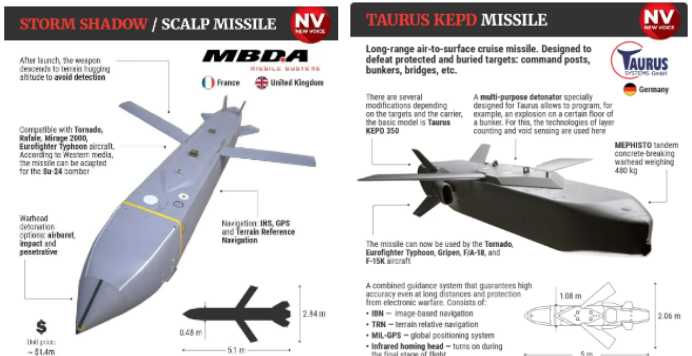How the Bad Germans Were Exposed by Their Generals - and Not Only By Them, by John Helmer
Ingo Gerhartz, (lead images), 58, was once a conscript in the German Luftwaffe who turned his ambition to be a fighter pilot into a Pentagon-supervised career to the very top of the German Air Force for the past six years.
The skinheaded Gerhartz has never faced combat in the air or even hostile fire from the ground, although for nine months of 2009 he dropped bombs on Afghanistan. He was a colonel then. It took him another six years acting as air force public relations spokesman in Berlin, before he was promoted to brigadier general. He made major general and lieutenant general in three years in a Berlin bunker.
However, Gerhartz has shed his blood. That was last November, when he donated it at a Tel Aviv hospital for those Israel Defence Forces who were hit by Palestinian soldiers defending against the genocide of Gaza.
Frank Graefe, 57, started his Luftwaffe officer’s career at the same time as Gerhartz and was better educated. But Gerhartz got ahead of Graefe in the air and on the promotion list. Both were trained in the US on Phantom fighters; Graefe then did more time at his desk than in the cockpit, and took nine years to get from lieutenant colonel to colonel. Gerhartz managed that promotion in six years. Even in Afghanistan, where Graefe also served, he sat on a chair in a heavily guarded office in Kabul. Graefe has never been in combat.
But he has served under direct Pentagon control at its branch on Reservoir Road, NW, Washington, which is known as the German embassy. Graefe was raised to brigadier general to act as military attaché there. “From Neuburg to the centre of power” is the headline in a Saarland regional newspaper which Graefe arranged to advertise himself in Washington; Saarland is Graefe’s home state; he is the most important figure ever to have been born in the village of Nohfelden, which is a short drive south of Cochem, Gerhartz’s home town next to the Büchel nuclear air base.
From the Pentagon Graefe returned to Berlin to serve under Gerhartz, but it is unclear — or remains secret — on which staff Graefe is serving; he is not ranked at the top of the Air Operations Command nor at the top of the Forces Command, nor on Gerhartz’s headquarters staff.
Graefe’s relationships with the Pentagon and with the US Air Force General Charles Brown Jr., now chairman of the Joint Chiefs of Staff, have been watched and assessed by Russian military intelligence for some time. Graefe’s work, together with Gerhartz, in running the NATO Air Defender 2023 exercise last June was a rehearsal and test run for F-16 attacks on Russia from airfields in Germany, Romania, and Poland to be used for refueling, electronic warfare, command and control, as well as disguise and deception; read the analysis here.
On February 19, when Gerhartz discussed the new operation combining F-16s with the Taurus missile, Graefe repeatedly emphasized how many months of delay would be required to prevent “an erroneous use…a rocket may fall on a kindergarten, and again there will be civilian casualties. These aspects must be taken into account.” Graefe also insisted: “We need to make sure that from the very beginning there is no language that makes us a party to the conflict.”
Gerhartz replied dismissively; the transcript exposes Gerhartz as gung-ho for attacking Russia, the sooner the better. “When we are planning deadlines, we should not overestimate them,” Gerhartz told Graefe. “There is no basis to say that we cannot do this. There is a certain scale where the ‘red line’ lies politically, there is a ‘long’ and a ‘short’ path, there are differences in terms of using the full potential.”
Graefe’s role in exposing Gerhartz’s operational plan to attack Russian civilian and military targets has drawn scrutiny from the GRU.
A report on what the Russians have learned about Graefe and Gerhartz appeared yesterday in Moscow. This is written by Yevgeny Krutikov, a former GRU field officer and one of the leading security analysts publishing in the Moscow internet platform Vzglyad. This is how the German enemy is to be seen.
For the full transcript of the Gerhartz-Graefe teleconference, and an analysis of its significance, read this.
The Russian original of the report can be read here. Illustrations and links have been added for clarification.
Vzglyad’s publication leads with a picture of Brigadier General Frank Graefe in combat uniform giving an interview to a Bild reporter.
Graefe promoted himself in front of the US Capitol in Washington in a hometown newspaper promotion in 2021. From 2012 to 2015 Graefe had led a squadron of Typhoon Eurofighters based at Neuberg which is 200 kilometres to the northeast of Nohfelden. He flew again with the Americans when he led a German airforce mission in Jordan alongside USAF operations against the Russians in Syria between 2015 and 2017.
March 4, 2024
Who gave Russia the confessions of a German general about plans to
attack the Crimean Bridge
By Yevgeny Krutikov
Germany has launched an investigation into the scandal involving the leaking of a conversation between senior German military officials discussing the attack on the Crimean Bridge. The Bundeswehr leadership blames “unsecured communication systems” for everything, thanks to which Russia gained access to this conversation.
However, there is reason to believe that the special services of an altogether different country had access to it, which then shared it with Russia. What is this about?
The German ambassador to Moscow, Alexander Graf Lambsdorff, arrived at the Russian Foreign Ministry on Monday, March 4, whence he was summoned in connection with the published conversations of the Bundeswehr officers about a possible attack on the Crimean Bridge. Russian Presidential spokesman Dmitry Peskov noted that the content of this conversation highlights the direct involvement of the West in the conflict over Ukraine. If everything the officers said is part of government policy, then that’s bad. If not, then the question arises as to how much the Bundeswehr is controlled by the Berlin authorities. The Kremlin expects to find out the results of the inspection promised by Chancellor Olaf Scholz.
Left: Ambassador Lambsdorff whose estates in Latvia and Estonia were confiscated by the Soviet Union which failed to recognize the military service his ancestors had performed for the tsar in the Russian empire. Right: Eva Hoegl, the Parliamentary Commissioner for the German Armed Forces. She is from Osnabruck, several hundred kilometres north of Cochem and Hohfelden.
Ambassador Lambsdorff declined to comment after visiting [the Foreign Ministry at] Smolenskaya Square. Official Berlin is still talking only about how the conversation of high–ranking German military officials was leaked. The substance of the conversation – discussing plans to attack Russian territory – does not interest them. Hence, on the subject of the investigation, which was launched by the German prosecutor’s office, investigators are only interested in the extent of the negligence of the officers who allegedly used an unsecured communication system.
According to German media, the Bundeswehr officers, whose conversation was intercepted, talked through the WebEx application from the American provider Cisco. And this system does not provide end-to-end encryption when connecting from a mobile phone.
The Bundestag‘s Commissioner for the German Armed Forces, Eva Hoegl, has already stated that all the responsible individuals should immediately undergo secure communication training. In addition, it is necessary to invest more funds in protection against espionage, and for this it is necessary, she said, to strengthen the German military counterintelligence service. According to Foegl, the incident shows the need to take urgent measures.
At the same time, a publication appeared in the London Times that Russia is allegedly able to track the transportation of SCALP missiles to Ukraine thanks to an intercepted conversation between Bundeswehr officers. German officers there say that France is sending missiles in some vehicles called Q7, and the British are using Ridgback armoured vehicles to transport Storm Shadow missiles.
Left: the SCALP/Storm Shadow missile manufactured by the German armsmaker, MBDA. Click to enlarge image. Right: the Taurus KEPD, built by MBDA. Click to enlarge and read more.
Meanwhile, the questions of the how, who, and why of the intercepted the conversation of the German officers are gradually becoming more complicated. German sources speak only of the existence of a “security hole”. In this regard, Brigadier General Frank Graefe, head of the Department of Operations and Exercises of the Bundeswehr Air Force, may become a scapegoat. He was the one who was in a hotel in Singapore at the time of the conversation, where he connected to the WebEx network via a local, unsecured Wi-Fi network. The rest of the participants of the video conference were in Germany, and there, they say, everything is supposedly protected. Which, by the way, is not a fact at all. It is enough to recall the scandalous wiretapping of Chancellor Angela Merkel’s telephones by the Americans.
In the Bundestag, the CDU faction wondered how “Russian spies” got the phone numbers of high-ranking German officers and “how they were able to gain access to this conference.” Is there only a problem with hotel Wi-Fi in distant Singapore?
To begin with, the German officers were talking to each other for a reason. They were preparing for an upcoming meeting with Defense Minister Pistorius. This already cancels all the logic of German self-justification for that part of the conversation which refers to the supposedly “purely theoretical” nature of the conversation. The pilots (at least two of them, including General Graefe, are people who are in love with their flying business, who are considered aces and still practice flying despite their general ranks) discussed the quite practical side of the issue in order to then voice it to the minister.
And here we can assume that someone who wanted to listen to all this could have known in advance that the officers were planning such a conference. Otherwise, we must assume that someone in a Singapore hotel was very lucky to connect to the Wi-Fi network at the right moment.
It is difficult to imagine that someone was relentlessly following General Graefe around the world in the hope of catching his accidental decision to connect from a regular telephone to a conference. The general could have gone to the German embassy, for example, where there is probably a more secure communication line. Yes, this is negligence on his part. But this negligence could not have been foreseen in advance.
In addition, in order to reasonably assume that the general will have been too lazy to leave his hotel room, it is necessary to have a full-fledged profile of his personality (to know the peculiarities of his behaviour and his preferences in action). This profile is formed within the framework of an “operational development case” (DOR), which is colloquially known by the term “dossier”, which is unusual for the Russian special services. A full-fledged personality profile of Frank Graefe could be formed if he had been under surveillance for a long time.
Frank Graefe was appointed head of the Air Force Operations and Exercises Department just the other day. And since the end of 2019, he served as the German military attaché in Washington, to serve as which he was awarded the rank of brigadier general.
Thus, if anyone knew in detail the peculiarities of General Graefe’s behaviour, it was the Americans. They also knew Graefe’s phone number, which they could connect to without any hotel Wi-Fi. This is not to mention the fact that the WebEx system originally belongs to an American provider, and the European military considers it safe on account of their misunderstanding.
Listening to all German pilots at once around the clock is a difficult task. As well as chasing Frank Graefe to Singapore in the hope that he would act negligently or unwisely at this very short instant in time – the conversation lasted only 38 minutes. But the finished recording could be obtained from those who found it much easier and more convenient to make it – the Americans. And they tend to listen to and record everything in general. And they have the appropriate technical capabilities.
Thus, it can reasonably be assumed that Russian intelligence has some kind of intelligence capabilities inside the US National Security Agency. Or if not exactly agents, then let’s say, informants who are close ideologically.
It is noteworthy that the American side behaves with very great restraint in regard to the transfer of such types of weapons to Ukraine as heavy long-range missiles like the Taurus. And this is plain at the level of the official rhetoric. And we must also remember that there are enough conservative people inside the American special services who can quite proactively sabotage the amateur activities of a number of European countries.
For example, [French President Emmanuel] Macron’s ideas about the possible introduction of NATO troops into Ukraine have caused a sharply negative reaction, not only from allies on the continent, but also in Washington. The keenness of a number of German politicians on the idea of transferring Taurus missiles to Kiev does not cause fears so much as sharply negative sentiment on the part of American officials.
Read more: https://www.politico.eu/
The internal German context is very complicated, especially during the pre-election period. And the publication of this conversation by German officers rather helps [Chancellor Olaf] Scholz, who has been blocking the whole story of the Taurus so far. The scandal, of course, hits the security system of Germany and, in general, the prestige of the Bundeswehr. But most importantly, it demonstrates to the whole world the danger and moral weakness of the very idea of supplying Ukraine with such weapons.
Objectively, on the issue of supplying Kiev with such weapons, the Russian and American positions appear to have a certain kind of congruity. It is scarcely possible to be talking about direct and official cooperation between the special services – that is still very far away, if at all possible in principle. But radical politicians in Europe should think about all the oddities of what is happening around the intercepted conversation of German officers. And the American side may soon be looking for “moles” in its own ranks.









